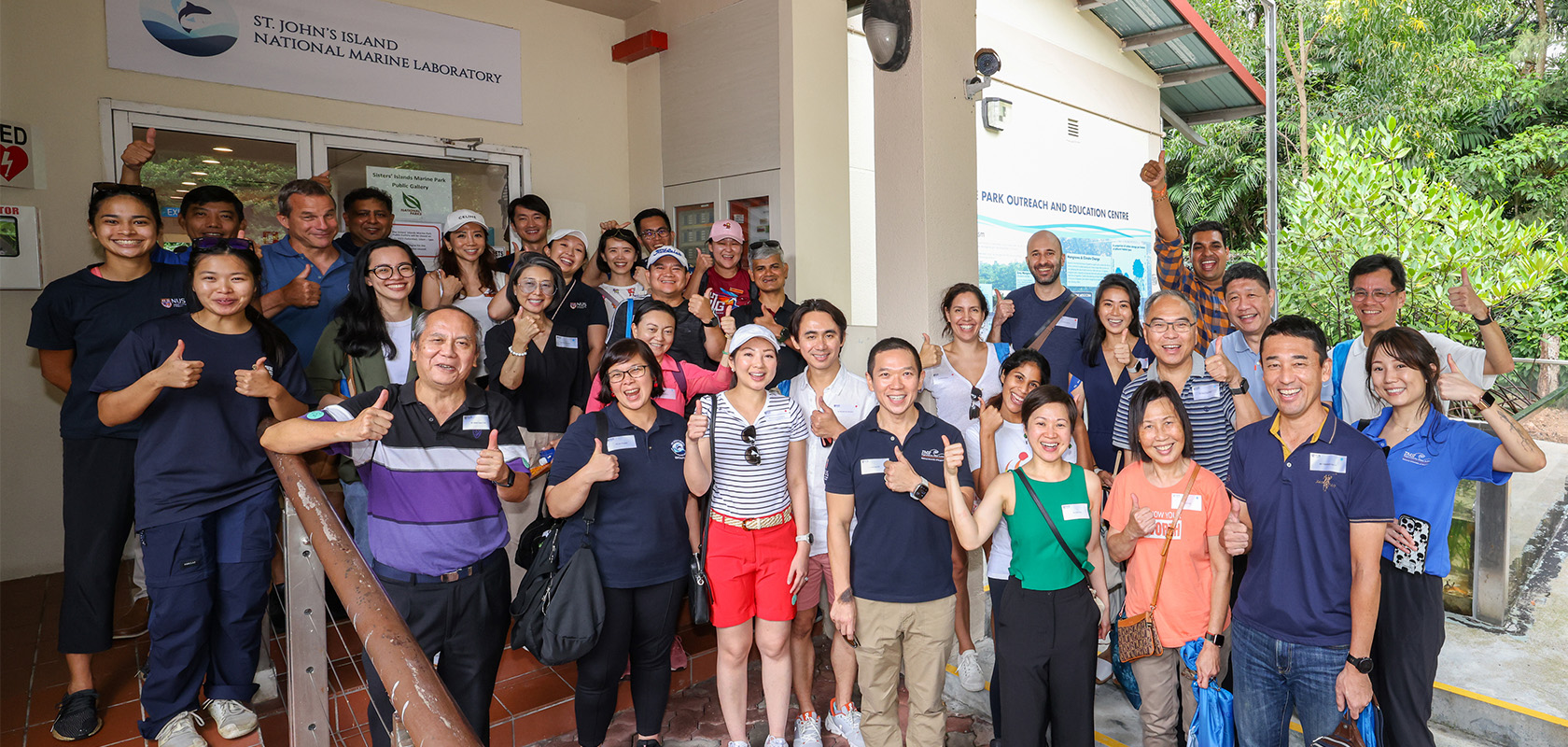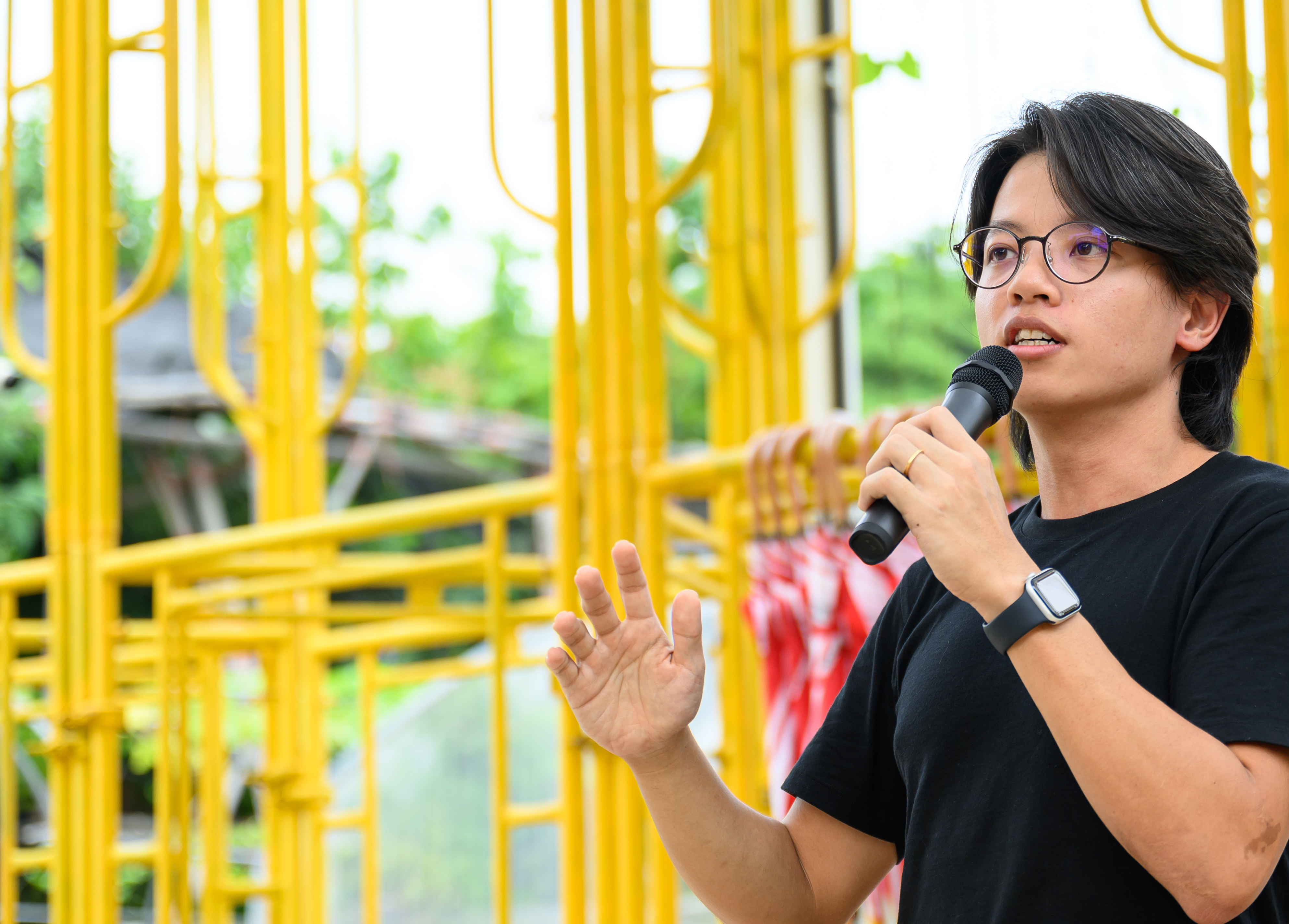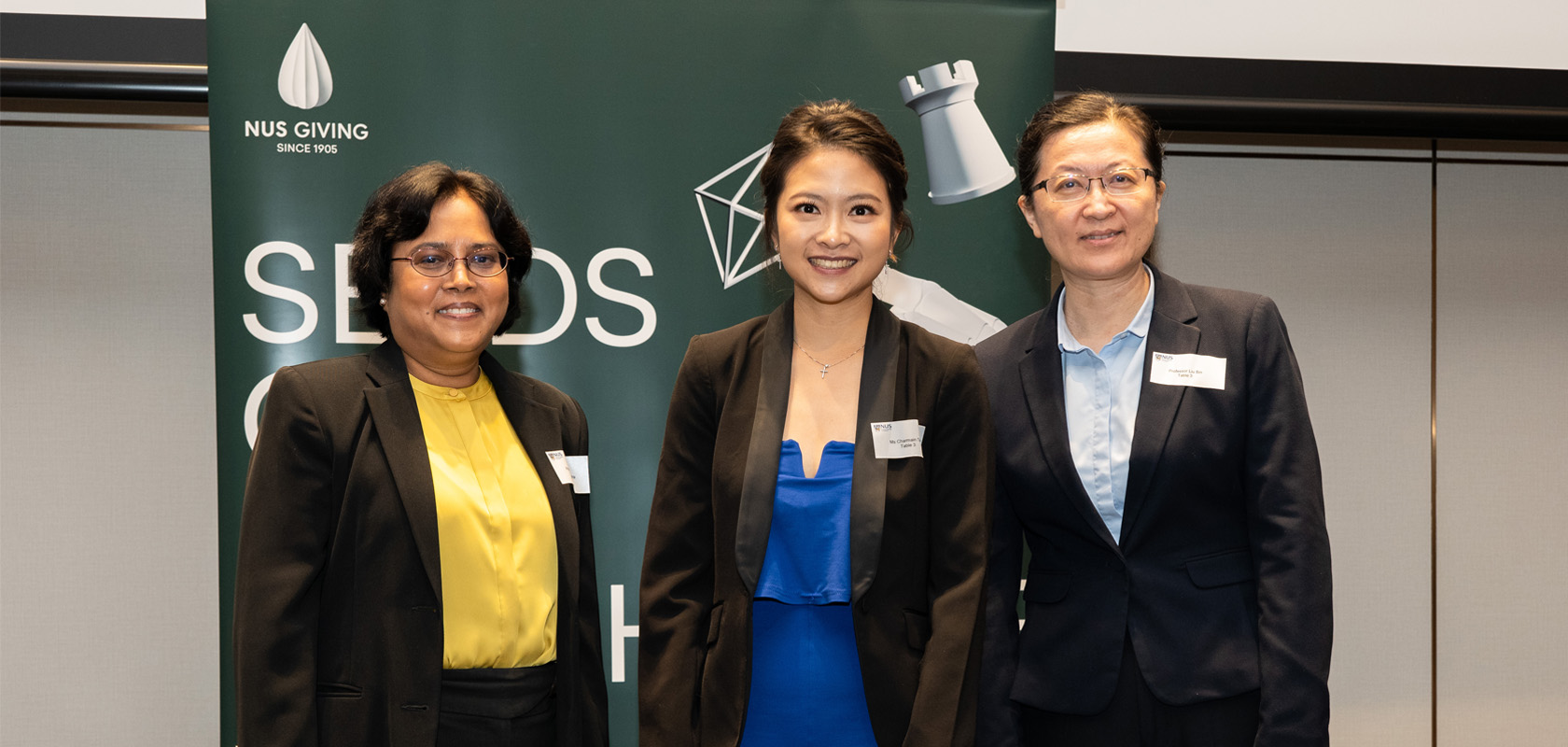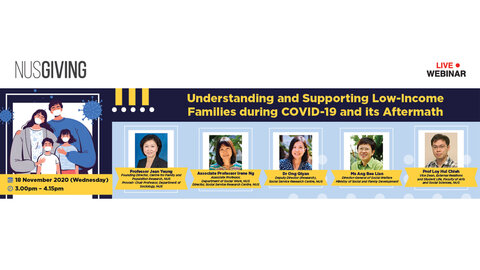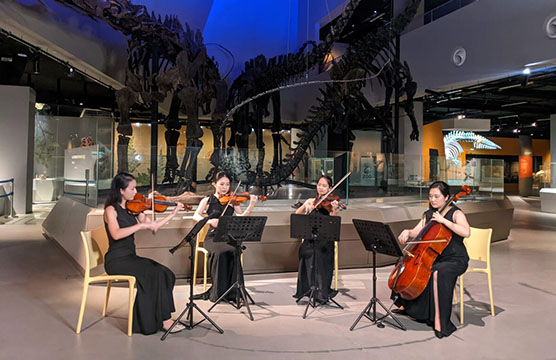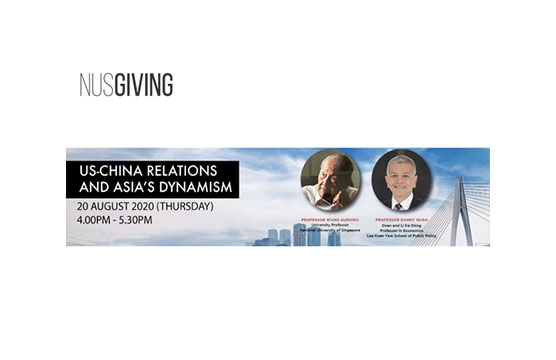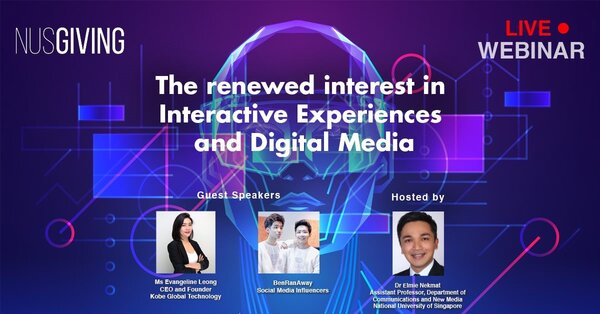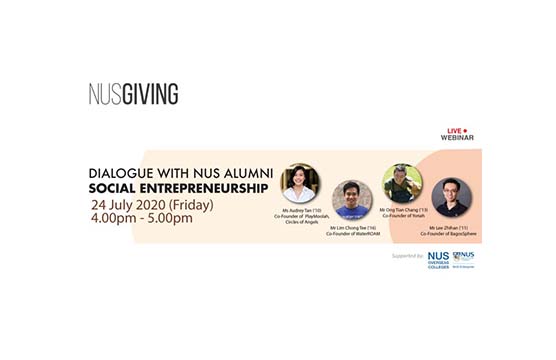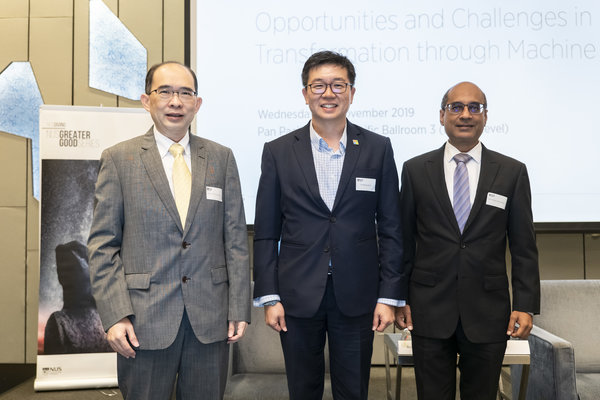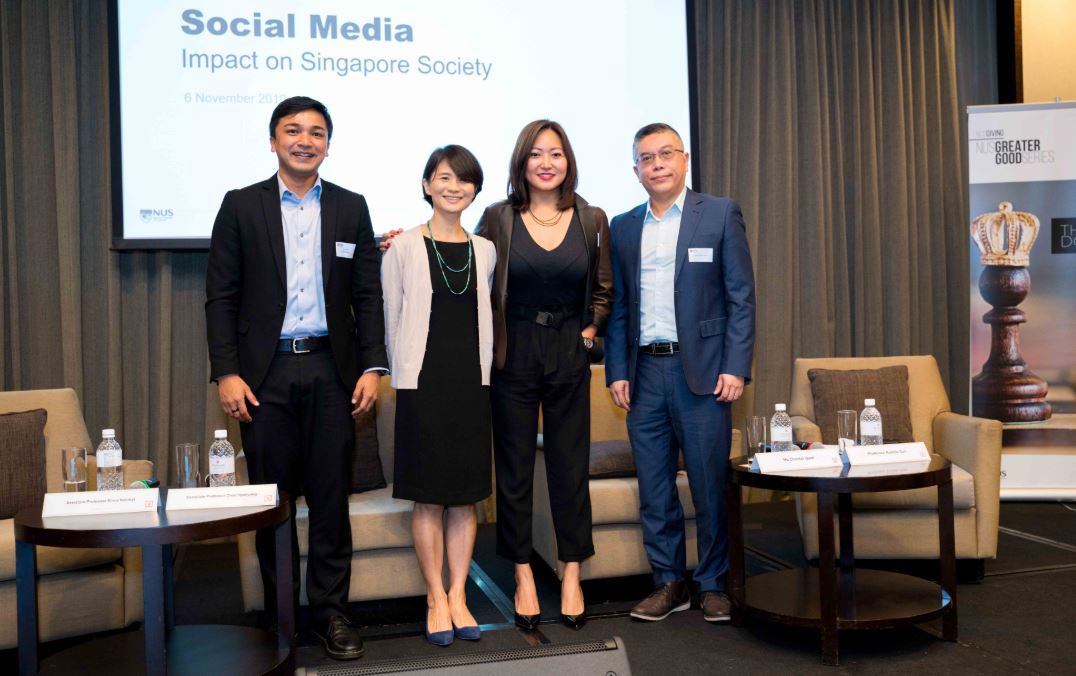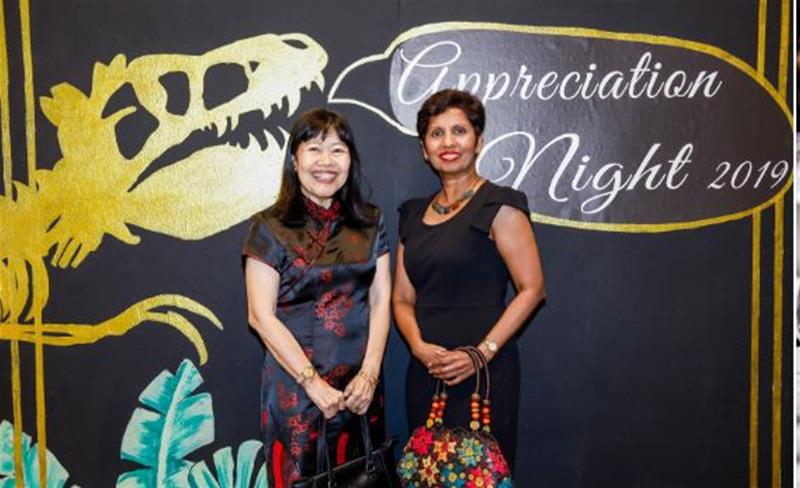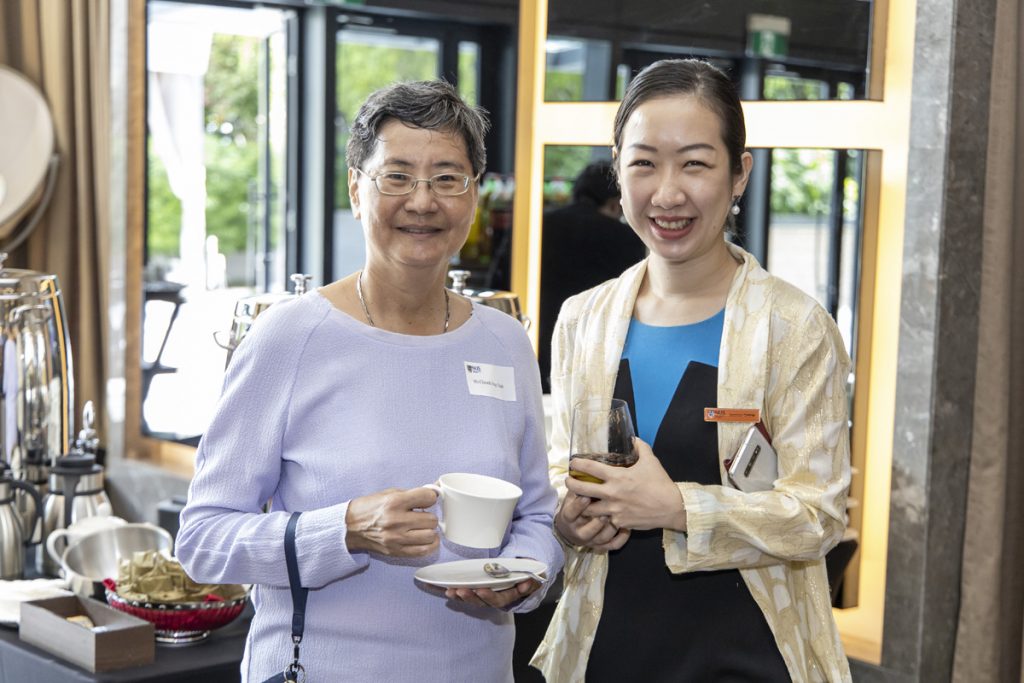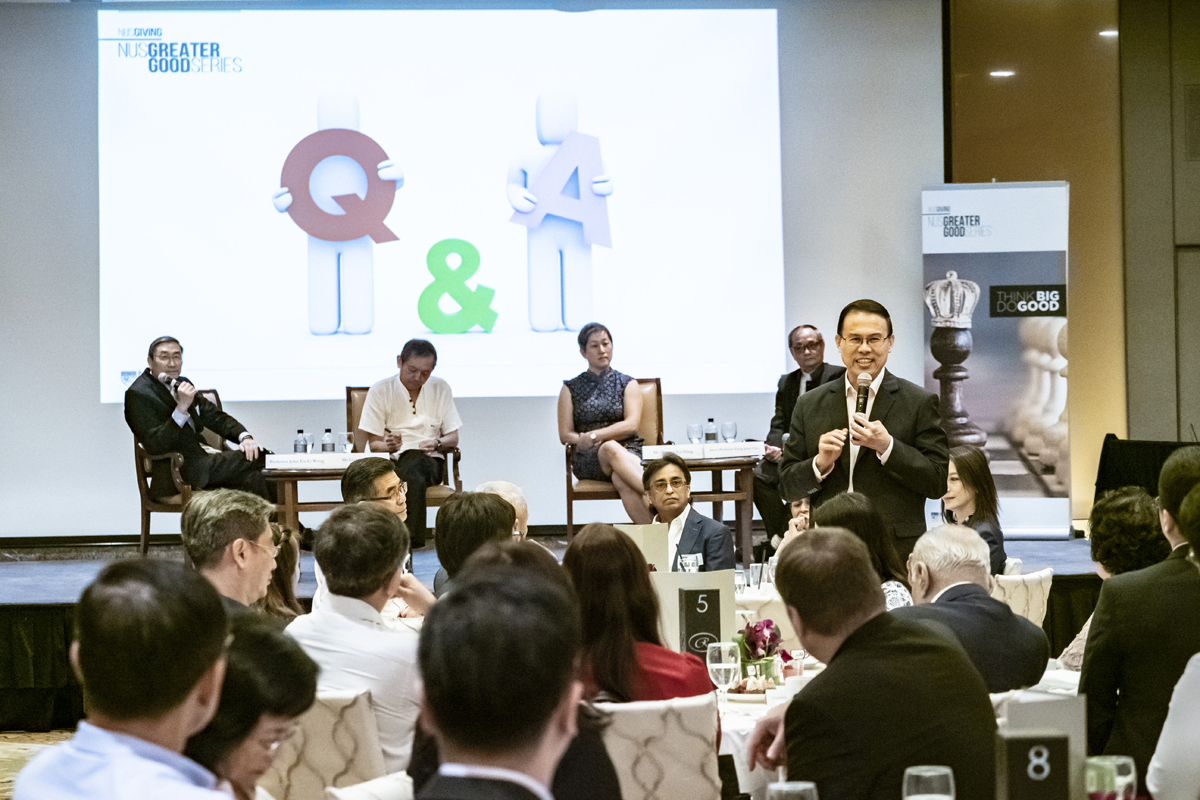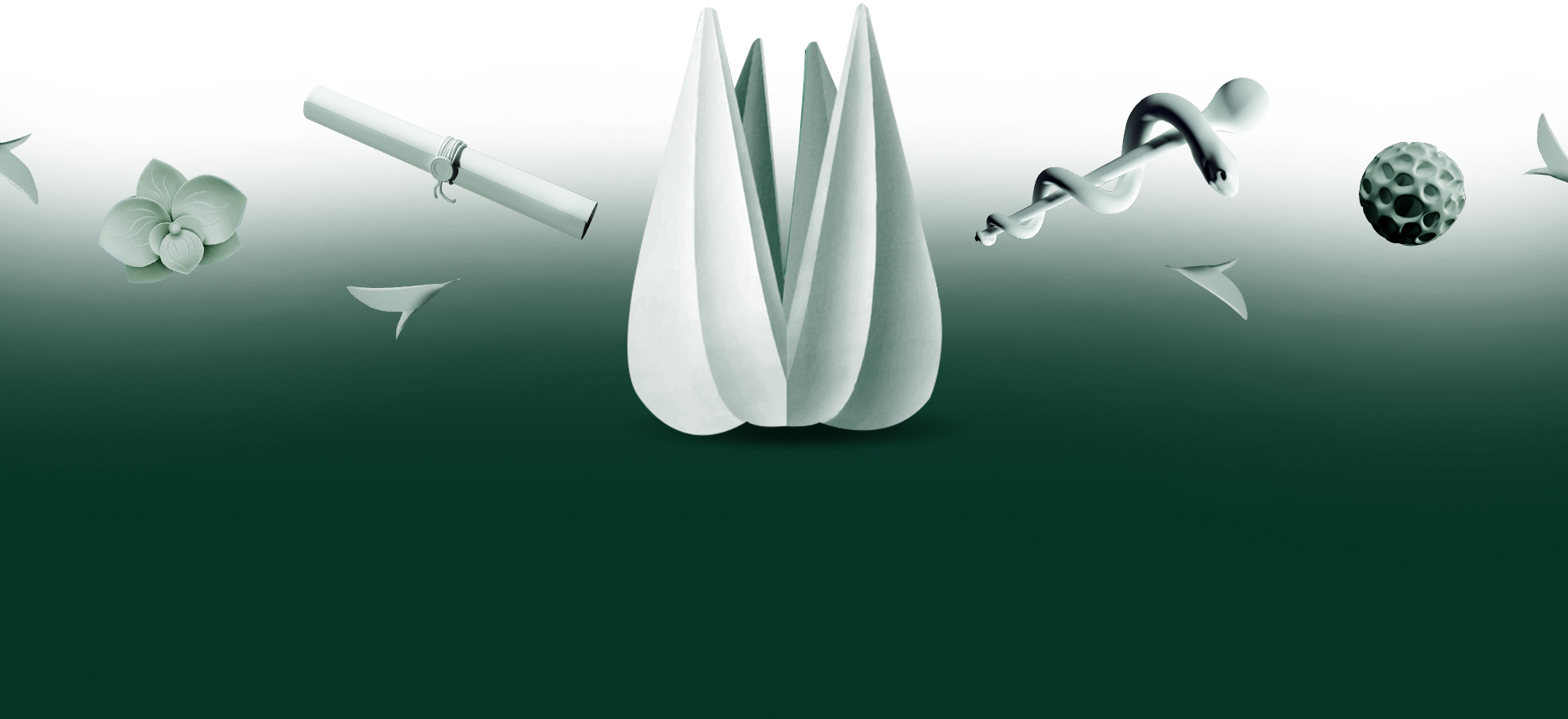NUS Giving Experience: Tune Music into Wellness – Celebrating the Launch of SE Asia’s First Centre for Music and Health
Apr 18, 2023
Have you ever heard of the term “Neuroarts”?
The Centre for Music and Health (CMH) at the Yong Siew Toh Conservatory of Music (YST), National University of Singapore (NUS), is the first dedicated research centre in Southeast Asia to spearhead cutting-edge, evidence-based practices that leverage the efficacy of music for health and well-being.
According to Dr Kat Agres, Assistant Professor at YST and Director of CMH, the NeuroArts Blueprint describes “Neuroarts” as the study of how the arts and aesthetic experiences measurably change the body, brain and behaviour, and how this knowledge is translated into specific practices that advance health and well-being.
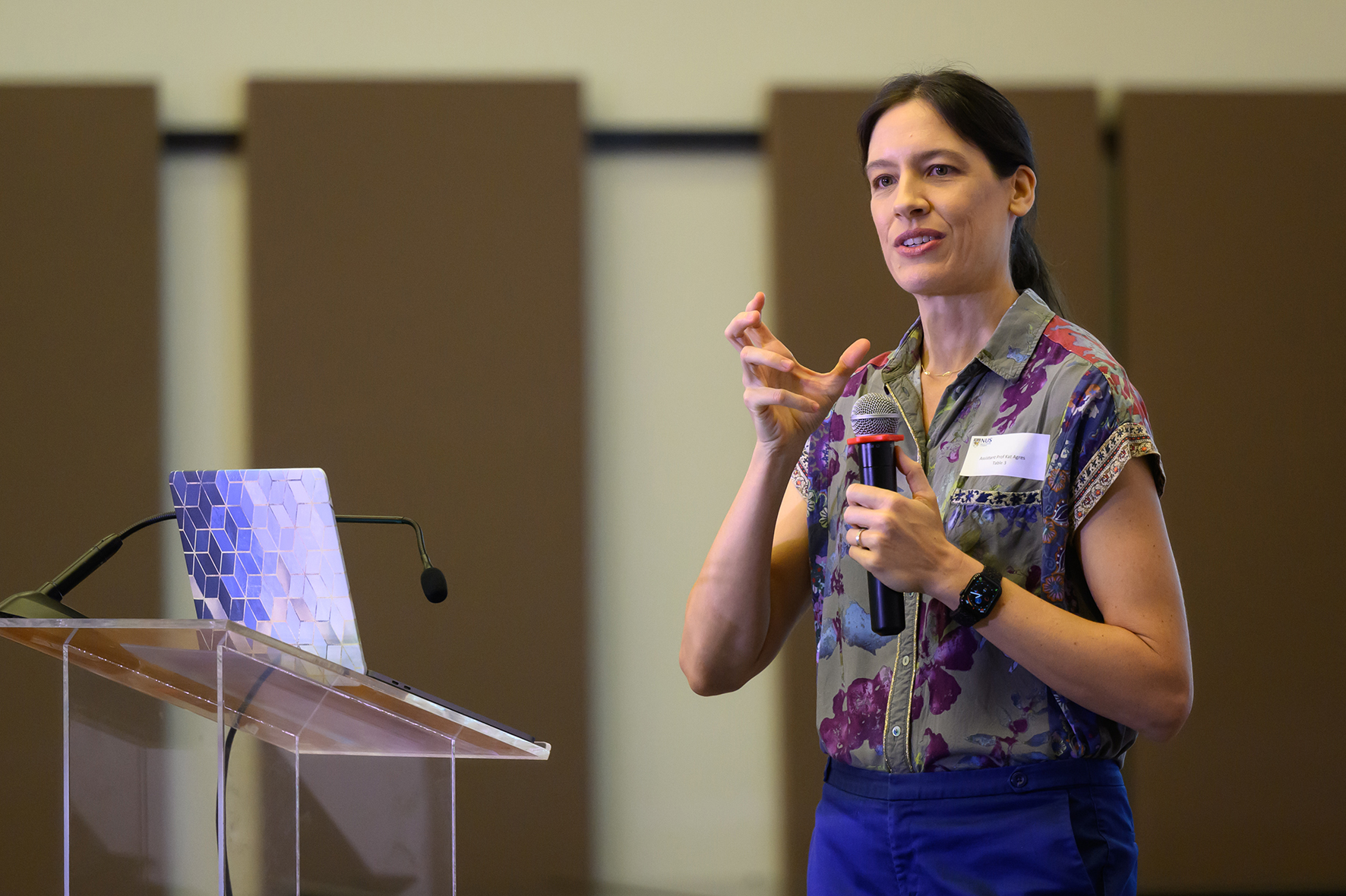 Dr Kat Agres, Assistant Professor at YST and Director of CMH
Dr Kat Agres, Assistant Professor at YST and Director of CMH
Some of the research findings on the benefits of music intervention include decreasing stress, anxiety and depression, and improving overall mental health; improving executive functions and cognition; serving as a memory-enhancer for dementia patients; aiding language recovery for speech-impaired patients; reducing pain and increasing pain tolerance; and improving movement and motor coordination in Parkinson’s patients.
Besides introducing the initiatives of the Centre, the event also showcased performances by the Lorong Boys, a Singapore-based band composed of YST alumni. The group, known for its unique blend of classical music and contemporary genres such as jazz, funk and pop, is currently an Ensemble-in-Residence at YST.
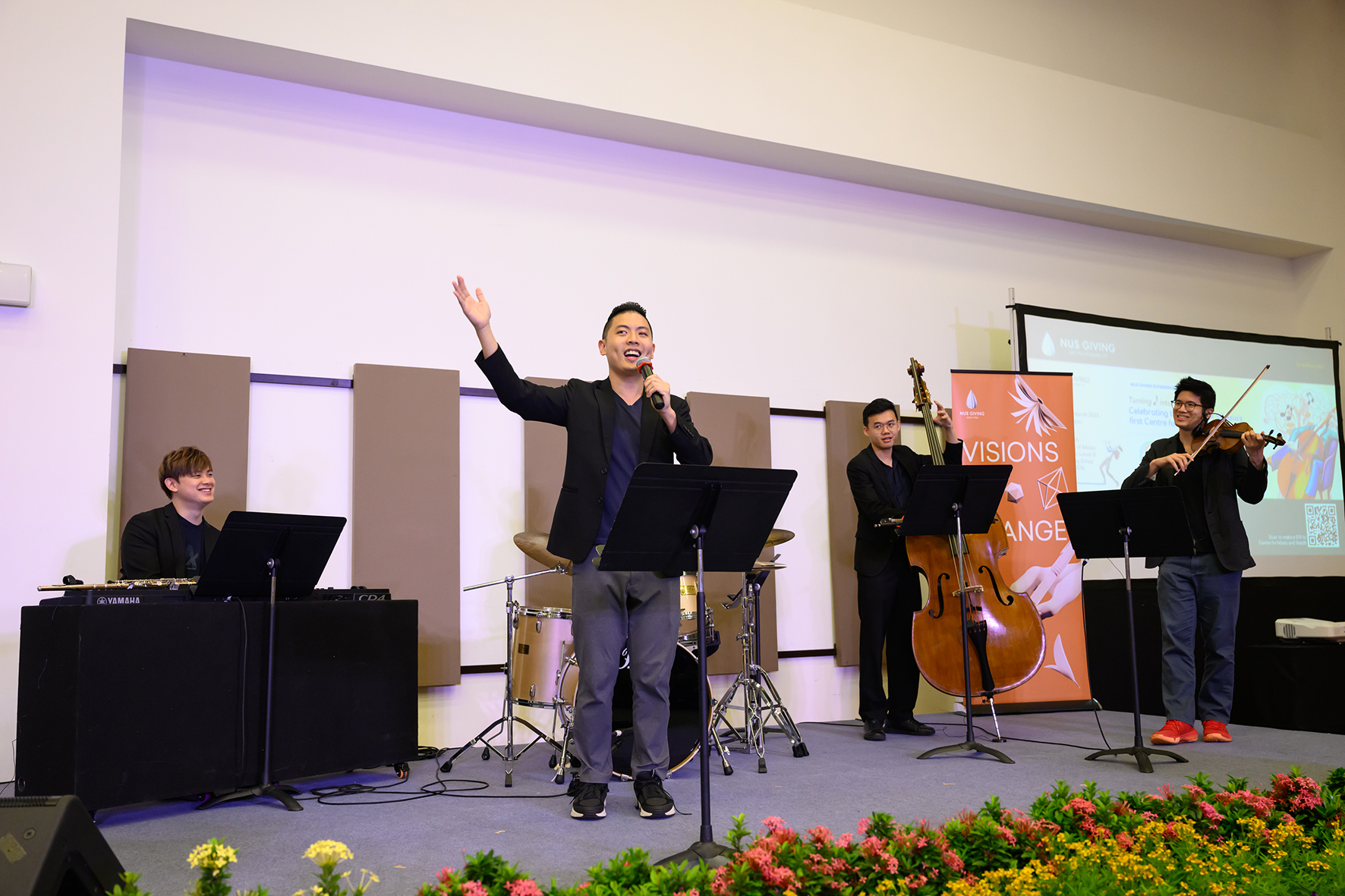
The Lorong Boys leading the audience to clap, snap, sing and move along to the beat
“We were all invited to sing, clap and join in the performance earlier – a very simple activity, but one that engages your mind, your hands, your voice and breath, and brings the entire room together in collaboration through music. Through the Centre for Music and Health, we are excited to explore new ways to harness the power of music to promote health and wellness, and to make a positive impact on the lives of those we serve,” said Professor Peter Tornquist, Dean of YST, on the Lorong Boys’ interactive opening performance of Limbo Jazz.
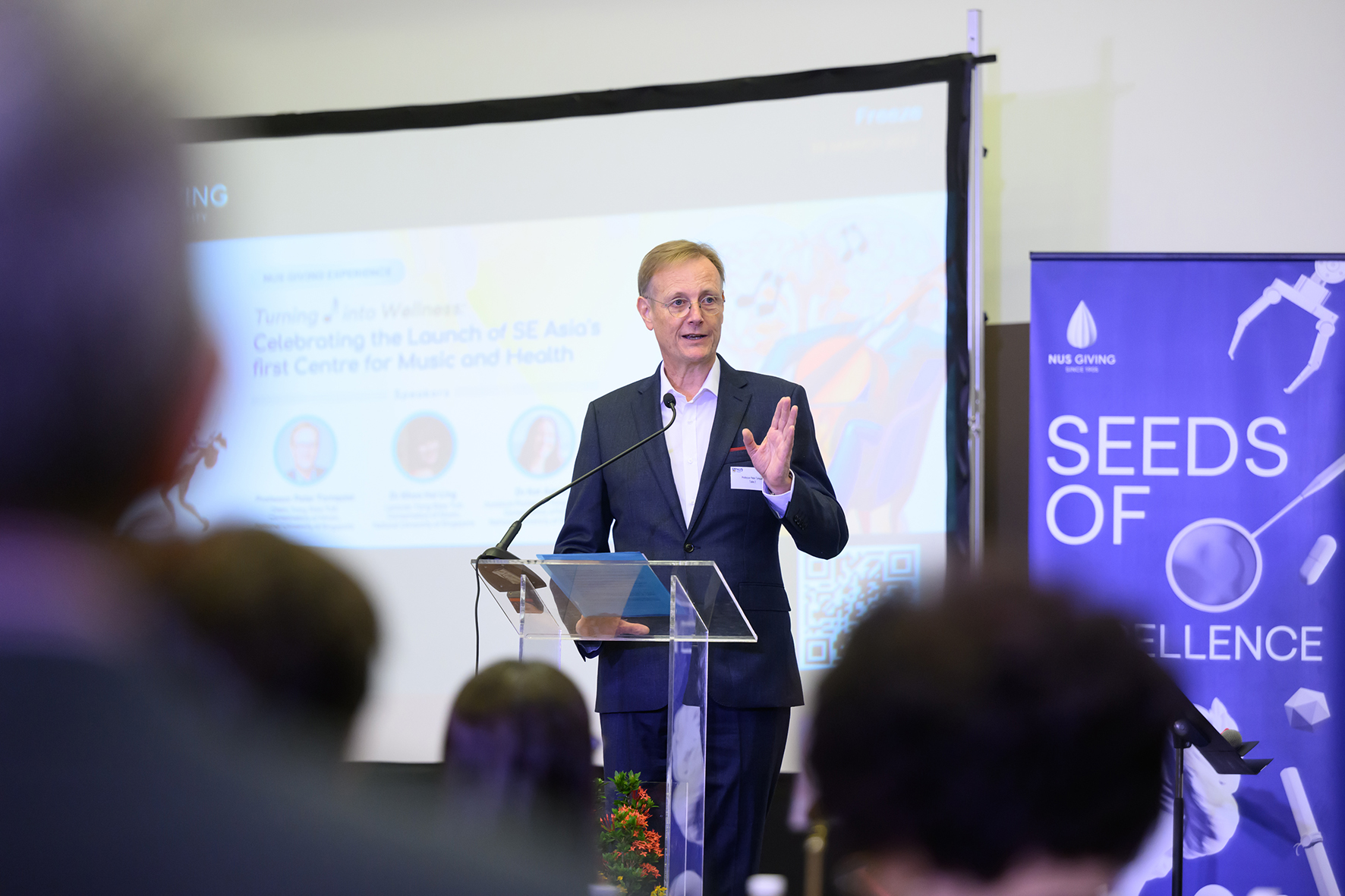
Professor Peter Tornquist, Dean of YST
In another sharing by YST lecturer Dr Khoo Hui Ling, her students are passionate about bringing their musical talents to perform and engage with people from different community groups in Singapore.
Dr Khoo shared, “At the heart of what I teach is community engagement through music. I believe in nurturing our students to listen with the heart. When they listen with the heart, they are compassionate, learn empathy and understand the perspectives of different kinds of audiences. They learn how to address the needs and wants of the different communities around them so that they are socially relevant.”
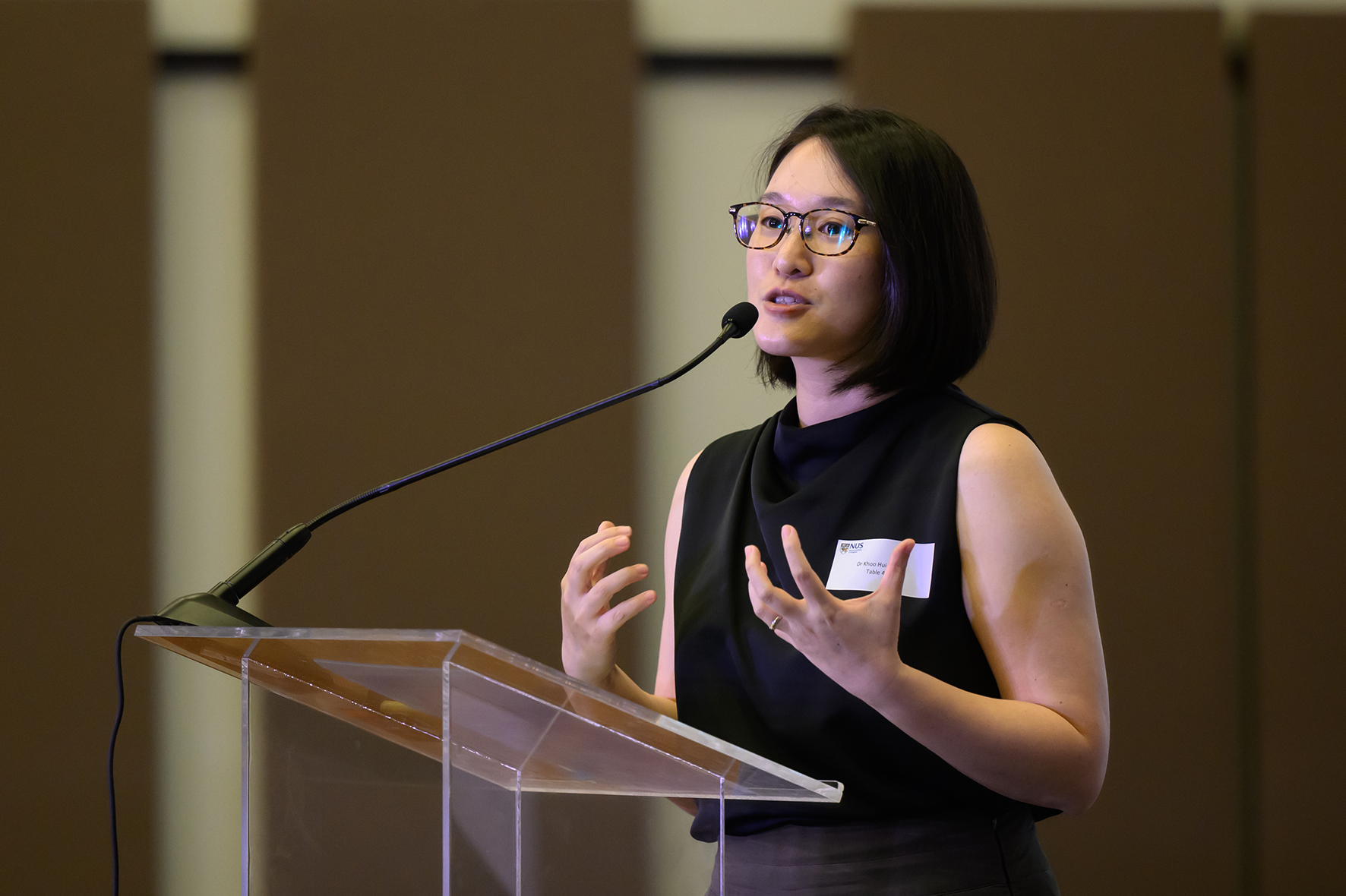
Dr Khoo Hui Ling, Lecturer at YST
To name a few, YST students have visited community groups such as Ren Ci Community Hospital, the Institute of Mental Health, HCA Hospice, St Luke’s Hospital, the School for the Deaf and Lighthouse School. During the outreach programmes, they would introduce a wide variety of musical instruments and engage the audience with activities that mix interactive storytelling and live performance, interactive soundscape presentation, and music and movement. Audience members were also invited to create and arrange their own music.
The genre of the live performances could range across jazz, classical, waltz, Mandarin and pop music, and a common crowd favourite has been Teresa Teng’s “The Moon Represents My Heart.”
“Witnessing the joy and enthusiasm of the elderly participants during the sessions was a really fulfilling experience for me, both as a musician and as a music student. It is heartening to know that such simple actions can have a very positive impact on people’s lives. I look forward to CMH expanding its outreach in the future and benefitting an even wider range of audiences through these meaningful projects and experiences,” shared Jasmine Ng, a final year music student at YST who also plans and leads engagement programmes.

Jasmine Ng, final year music student at YST
During the panel discussion with Prof Tornquist, Dr Agres and Dr Khoo, a member of the audience asked to distinguish the difference between Neuroarts and music therapy. In response, Dr Agres elaborated, “Music therapy is used by clinicians to meet the patient’s goals in a clinical setting, so it is patient-centric care delivered to meet the individual’s needs. Neuroarts, or Arts for Health, is about better understanding how music impacts the brain, body, and behaviour. We are doing research to build up the knowledge-base, and translating our findings into music practices that improve lives on and off campus.”

Panel discussion with Prof Tornquist, Dr Agres and Dr Khoo
One of the goals of the CMH is to establish partnerships with the local government, policymakers and art organisations, and international leaders such as the World Health Organisation, to collaborate and influence public health policy.
The Centre also hopes to raise funds to scale-up and sustain projects that will impact the lives of both the young and the old, especially in the areas of mental health, youth and student well-being, as well as healthy ageing and community wellness.
It aims to foster the next generation of musicians as future ambassadors of music for health, and to serve as an international model and leader that will inspire future generations to work in the field of arts and health in Asia.
For further information on the NUS Giving Experience Series, contact the Events team at dvoevents@nus.edu.sg.


